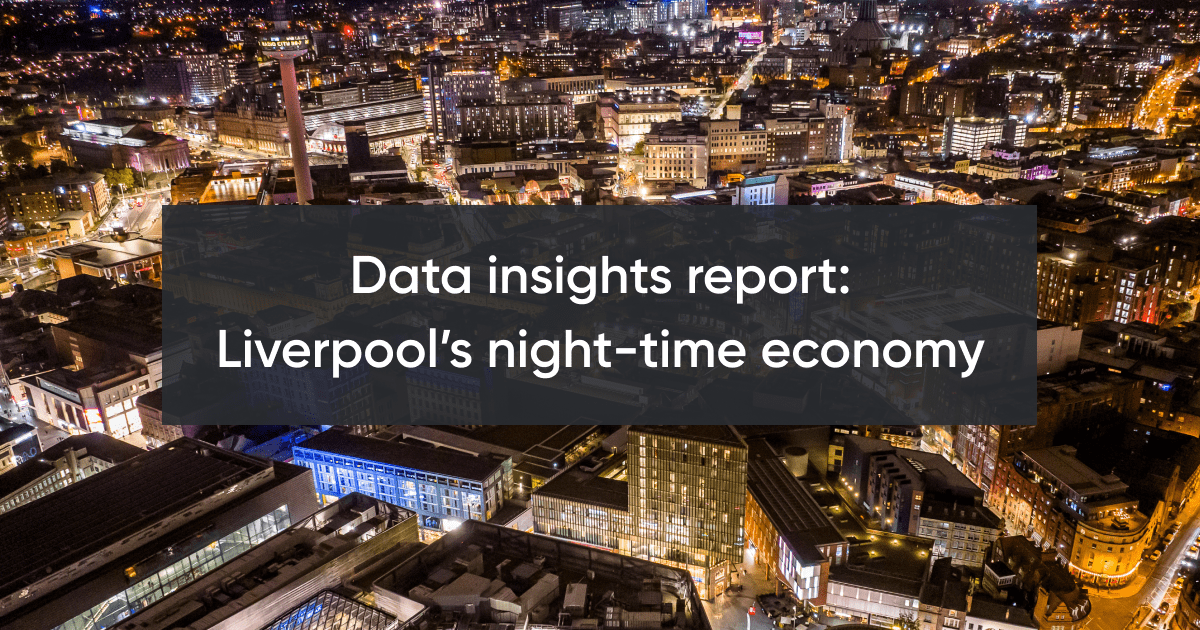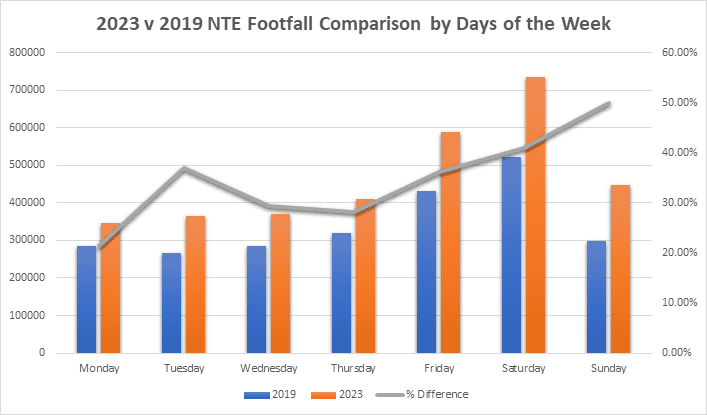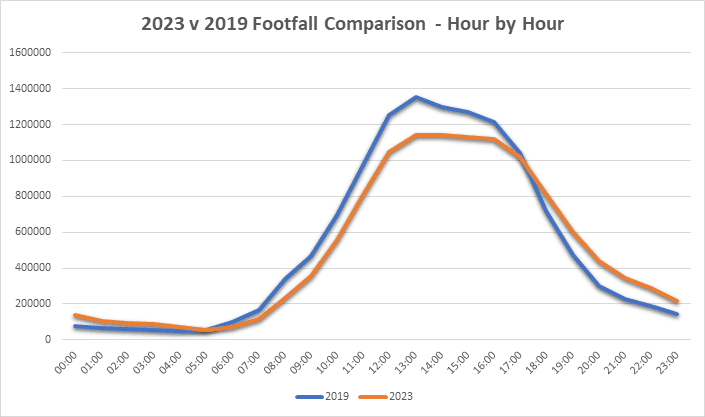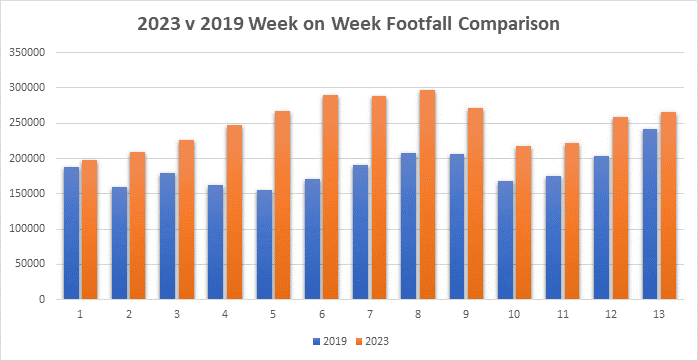Liverpool’s night-time economy

Liverpool is home to a vibrant night-time economy. Culture, and the night time economy, is a vital ingredient in Liverpool’s world-leading brand. It is a major attraction in itself yet still one that needs to be managed and maintained, as any vibrant business ecosystem does. Spread across Liverpool’s BID Areas, the city centre features restaurants, bars, nightclubs and music venues, each catering for a late night audience.
Liverpool BID Company works with a number of partners to help manage the city centre night time economy. This includes supporting those venues and businesses that are levy payers, ensuring they are able to access the business support they need and investment to help them thrive. Night-time economy businesses within the BID Areas are exempt from the Late Night Levy, imposed by Liverpool City Council, to help ensure their venues are able to continue to make their economic investment in the city centre.
Liverpool BID also ensures the night-time economy is managed to support the public realm, including security and safety, working alongside Merseyside Police and other partners to ensure that Liverpool remains one of the safest cities in the UK for a night out.
Street cleansing from BID Rangers helps to ensure city centre streets are kept clean post the busiest nights in the night time economy. Rapid cleansing allows for the city’s early morning economy to begin, helping to make the the city centre is ready for the day ahead.
Liverpool BID also provides the night time economy with data and insight, helping to understand the ebb and flow of footfall, managing busier times and putting in measures to ensure venues are able to support revellers. It also supports businesses in identifying trends to support marketing and engagement, ensuring they can increase and attract footfall at less busy times.
Movement Insight
(Data via Liverpool BID Company)
- 18:00 is the highest hourly footfall (3,530,288 – 21.21% of NTE footfall)
- Saturday is the highest day of the week for NT footfall (3,509,845 – 21.1% of weekly footfall)
- October is the highest month of the year for NT footfall (1,650,158 – 9.92% of yearly footfall)
- Church St has the highest amount of NT footfall traffic in the BID area (6,987,185 – 41.99% of BID footfall)
- Sunday is seeing the highest percentage difference of any day of the week in comparison with 2019, with a 50.02% increase compared with 2019.
Liverpool BID Company tracks footfall data from cameras on Bold Street, Williamson Square, Church Street, Clayton Square and Whitechapel. This helps to track people as they move through the city centre. The Night-time economy is defined as between 6pm and 6am.

Liverpool’s night-time footfall has steadily increased each day in 2023 compared with 2019. Weekday foot traffic has shown an average increase of 30.41% with weekends showing an average increase of 45.54%. On average, Saturday, the busiest day of the week, has seen an average footfall 735,122.

In the hour by hour comparison, midnight has seen the highest percentage difference in footfall in 2023 compared with 2019, with an increase of 80%.

The highest difference in footfall occurs in week 5 of 2023, compareFd with 2019 (30/01 to 05/02) with a % difference of 72.73% compared to the same week in 2019.
Employment and Economic Insight
(Data via ONS)
In Liverpool in 2022, 125,889 people worked in the night time economy. This is up from 123,531 in 2021 and 119,750 in 2019. This represents 24% of the population and 48% of employment in Liverpool.
Night-time economy workers are defined as those who “usually” work evening or night, but the night time industries can include day workers as well as night workers.
There are more men working in Liverpool’s night time economy than women. 60% of all night time workers are working in night time industries. Over 40% of night time workers in night time cultural and leisure activities are under 24.
The sectors with the highest proportion of night time workers include accommodation, food and drink.
Bill Addy is CEO of Liverpool BID Company:
“Liverpool’s night-time economy is a vital ingredient in the city’s culture and international brand. With Eurovision approaching many are focused on the economic impact the two week event will have, particularly on the bars, restaurants and leisure attractions in the city. The growth in our night-time economy bucks the UK trend but also shows the importance of ensuring that, as a city, we continue to work and strive to make sure the city is safe, clean for visitors and a healthy place to work for its employees.”


